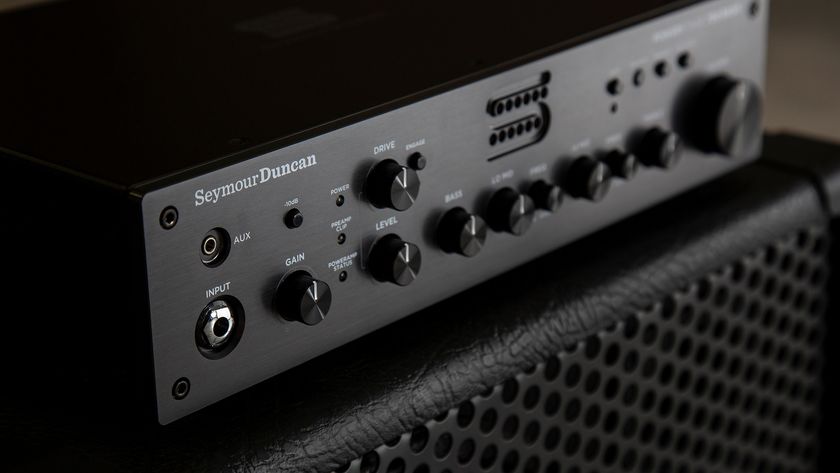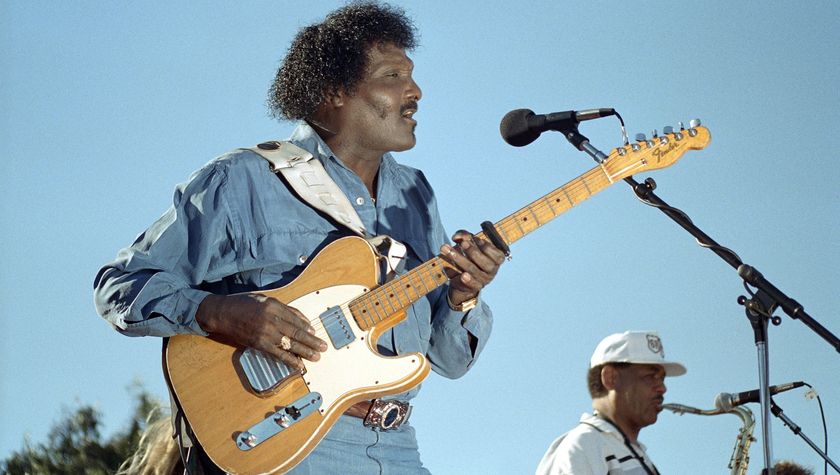Issy Ferris: “Playing bass gives me a power and character on stage that I hadn’t experienced before, and has made me a better performer and writer“
Ferris & Sylvester kick out a full-band sound with just two members. Here, bassist Ferris explains how she does it

What was your way into bass, Issy?
“I first picked up a bass in 2017 when Archie Sylvester and I were expanding our live setup. We wanted to figure out a way to get the blues-rock sound we were aiming for without adding band members. We had a lot of shows to play and very little budget, but those kinds of limitations can often lead to creativity. Archie upgraded his Hofner President to an electric Greco 335 and added a kick drum and tambourine that he played with his feet. We felt we needed more low end, and Archie’s hands and feet were full, so it was over to me to pick up the bass.“
How do you define what you do?
“I’m a songwriter. I had never thought of myself as a musician or even a guitar player, even though that was my main instrument and I rarely sang without it, but I fell in love with the bass instantly. It clicked. I desperately wanted to prove myself and do justice to our new, exciting sound.
“Archie is a musician through and through who plays everything to a very high standard. It was his idea to put me on the bass, and he was very supportive and boosted my confidence in those early rehearsals. Playing bass gives me a power and character on stage that I hadn’t experienced before, and has made me a better performer and writer as a result.“
What was your first bass?
“It was an Epiphone Viola. We found it in 2017 and bought it for recording. I play bass with a pick and this was the perfect bass to do it, or at least I thought so after learning that Paul McCartney played the same way on his Hofner. If it was good enough for Paul, it was good enough for me. I love playing it.
Get The Pick Newsletter
All the latest guitar news, interviews, lessons, reviews, deals and more, direct to your inbox!
“We played over 100 shows in 2018 and the Epiphone was with us every step of the way. It’s a trusty instrument, although it’s also quite delicate because of its floating bridge, and because it was getting a bashing being on tour all the time. It now lives in our studio and features a lot on our records.“
I like to keep things simple. Playing live, I put my Hofner through an MXR preamp. The engineer takes a DI from there and I use a Fender Rumble for monitoring
Which other basses have you played since then?
“I’ve owned two basses – the Epiphone and a 1963 short-scale Hofner which became mine in December 2018. I haven’t done a show without it since. It’s pretty indestructible, although you wouldn’t think it would have such a gritty, powerful sound given its size and weight. I felt like it was an underdog when I found it. Rather like me as a bass player, it wasn’t the obvious choice – but it had something about it. I’ve really grown as a player with it.“
What other bass gear do you use?
“I like to keep things simple. Playing live, I put my Hofner through an MXR preamp. The engineer takes a DI from there and I use a Fender Rumble for monitoring on stage. We try and keep the stage fairly quiet, so the Rumble does the job. I found the MXR at Matt Umanov Guitars in New York just as it was closing down, and I’ve used it for all our live shows and a lot of recording. In the studio, we normally DI the bass. It sounds amazing through our Universal Audio 610 preamp, just touching a 1176 compressor on the way in.“
Give us some advice about playing bass.
“It’s all about the feel. You can be playing the simplest part, but it won’t sound right unless you’re in tune with the groove. I’m so aware of it on stage. Sometimes the nerves and adrenaline of performing can make me want to drive the song forward and sit ahead of the beat. I’ve learned to readjust how I hear the beat and relax into it, especially if I’m nervous. There’s no point trying to fight those feelings; you’ve just got to work with what you’ve got.“
It’s not necessarily about intricate bass techniques, but about using the instrument to do the song justice
Which bass player do you most admire?
“I saw the duo First Aid Kit play a few years ago. Johanna Soderberg sang and played bass, and I sort of fell in love with her. It was a brilliant show and I felt very empowered just to be there, watching them play with such confidence and skill. Like me, they’re songwriters, and the song comes first.
“It’s not necessarily about intricate bass techniques, but about using the instrument to do the song justice. After that, I became all the more determined to hone my craft. Having said that, I love watching bass players properly show what they can do. We saw Vulfpeck play around the same time and Joe Dart did his famous Dean Town bass solo. It totally changed the game for me.“
- I Should Be on a Train EP is out now via Lab Records.
Bass Player is the world’s most comprehensive, trusted and insightful bass publication for passionate bassists and active musicians of all ages. Whatever your ability, BP has the interviews, reviews and lessons that will make you a better bass player. We go behind the scenes with bass manufacturers, ask a stellar crew of bass players for their advice, and bring you insights into pretty much every style of bass playing that exists, from reggae to jazz to metal and beyond. The gear we review ranges from the affordable to the upmarket and we maximise the opportunity to evolve our playing with the best teachers on the planet.

“The bass is the instrument you need to play the longest to become truly funky”: 20 funk bass legends who took low-end groove to new heights
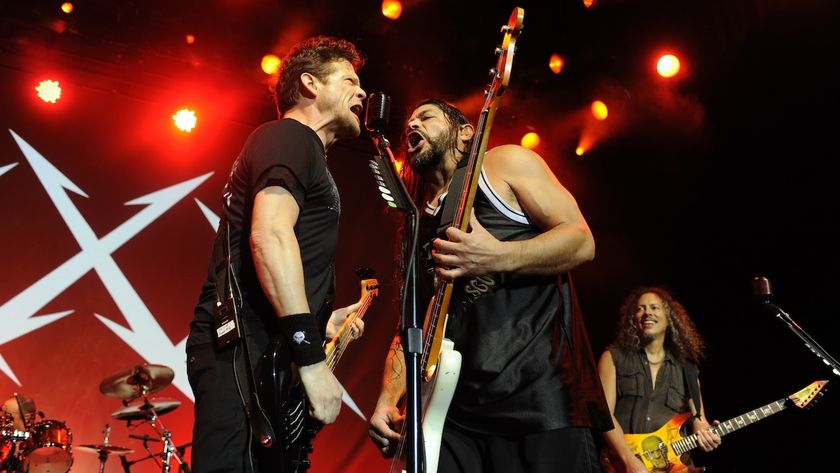
“There’s an art to simplicity, and Jason Newsted brought that art. Cliff Burton was more aggressive, and a busier player”: The bassists of Metallica

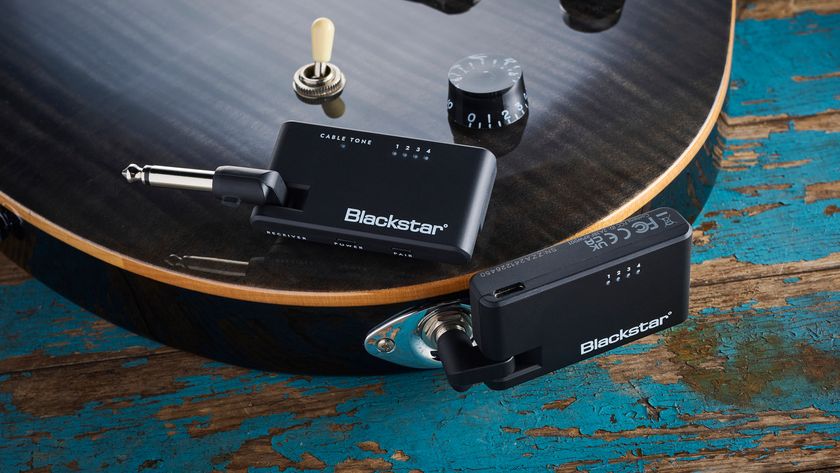
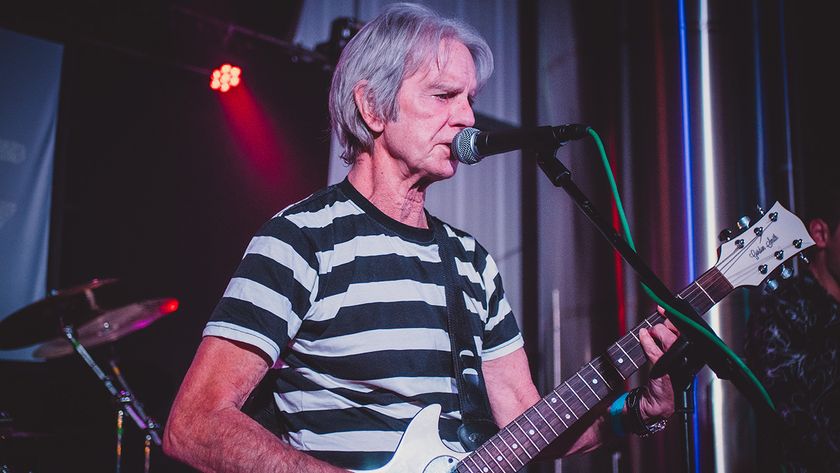
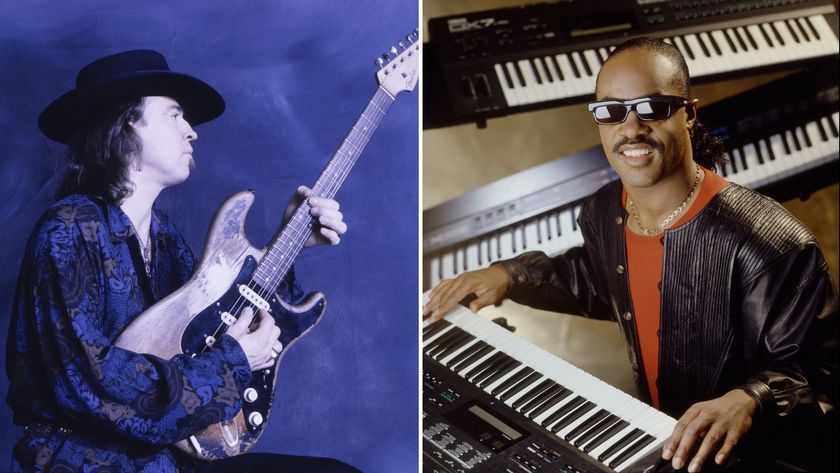
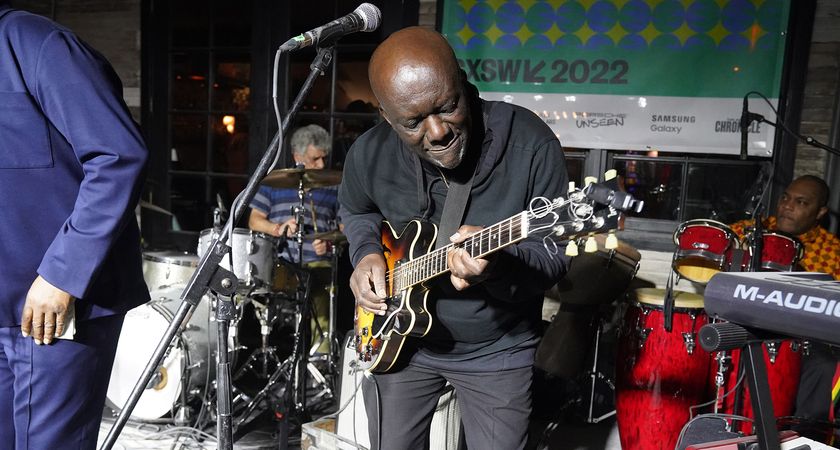
![[L-R] George Harrison, Aashish Khan and John Barham collaborate in the studio](https://cdn.mos.cms.futurecdn.net/VANJajEM56nLiJATg4P5Po-840-80.jpg)
